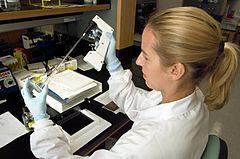

Researchers at Children’s Hospital in Boston have reported in the online edition of Diabetes that they have identified the specific molecular pathway involved in triggering the autoimmune response at the root of type 1 diabetes. The research team studied “hundreds” of pathways in animals with diabetes and ultimately identified one, known as ATP/P2X7R, which triggers the immune system’s T-cell attacks on the pancreas that subsequently prevent the pancreas from producing insulin.
While this research is akin in some ways to many disease research discoveries that are dramatic but that have not led to cures or significant advances in treatment, the discovery of the root pathway in type 1 diabetes is significant for the fact that it opens up the possibility of, on the one hand, interrupting this pathway in order to the autoimmune destruction of patients’ insulin-producing islet cells and, on the other hand, interrupting this pathway to similarly prevent destruction of islet transplant cells. It may well be years before this leads to treatment options, which may include “drug therapies to transplants that require less immunosuppression” for patients with existing type 1 diabetes and options to even prevent type 1 from developing in children.








